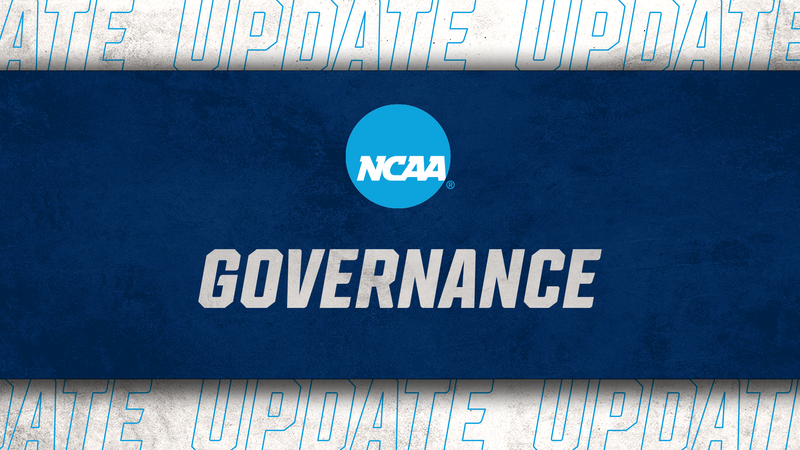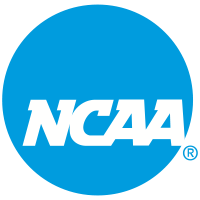
DI board approves clarifications for interim NIL policy - NCAA.org
The Division I Board of Directors has issued updated guidance to member schools about the interim name, image and likeness policy.
 www.ncaa.org
www.ncaa.org
Guidance centers on institutional involvement in deals for current student-athletes
The Division I Board of Directors on Wednesday voted unanimously to clarify how schools can be involved with the name, image and likeness activities of enrolled student-athletes on their campuses. The new guidelines were recommended by a membership working group and supported by the Division I Council earlier in October.
The board's updated guidance (PDF), while not an exhaustive list of specific circumstances, is intended to clarify how existing NCAA rules apply to the interim policy for name, image and likeness, specifically how the current rules relate to Division I member schools' involvement in NIL activities.
"The NIL landscape is constantly evolving, and the Board of Directors decided it was important to offer further guidance with respect to a number of key questions that have arisen recently," said Jere Morehead, chair of the board and president of the University of Georgia. "As we continue to reinforce current NCAA rules, we expect to offer further guidance in the future on what should and should not be done when engaged in these activities. We are committed to fostering a fair and appropriate NIL environment that supports our students and complies with our rules."
Education/monitoring for current students
The board noted that schools generally can and should provide education to current student-athletes, including on topics like financial literacy, taxes, social media practices and entrepreneurship. Schools also can provide NIL education to collectives, boosters and prospects. The board also noted that — when permitted by applicable state laws — schools can and should require student-athletes to report NIL activities to the athletics department.School support for student-athlete NIL activities
Under the interim policy, schools can inform student-athletes about potential NIL opportunities and can work with an NIL service provider to administer a "marketplace" that matches student-athletes with those opportunities. They cannot, however, engage in negotiations on behalf of an NIL entity or a student-athlete to secure specific NIL opportunities.Schools also can support their enrolled college athletes in NIL activities directly by providing stock photos or graphics to either a student-athlete or an NIL entity or arranging space on campus for an entity and student-athlete to meet. Schools cannot, under the interim policy, provide free services (graphic designers, tax preparation or contract review) to student-athletes unless those services are available to the general student body, nor can schools offer equipment (cameras, graphics software or computers) to student-athletes to support NIL activities, unless that equipment is also available to the general student body.
The latest guidelines also clarify that member schools can promote student-athletes' NIL activities, provided the student-athlete or NIL entity pays the going rate for that advertisement (for example, on a video board during a game). However, schools cannot allow student-athletes to promote their activity while participating in required athletics activities (pre- and postgame activities, court celebrations and news conferences).
School involvement with collectives and other NIL entities
The board also clarified that school personnel (including coaches) can assist an NIL entity with fundraising through appearances or by providing autographed memorabilia but cannot donate cash directly to those entities. School staff members also cannot be employed by or have an ownership stake in an NIL entity.Schools also can request donors provide funds to collectives and other NIL entities, provided the schools do not request that those funds be directed to a specific sport or student-athlete.
Finally, schools can provide tickets or suites to NIL entities through sponsorship agreements, provided the terms of those agreements are the same as for other sponsors. Those same assets cannot be offered as an incentive to provide funds to an NIL entity.
Lynda Tealer, chair of the NIL Working Group and executive associate athletics director at Florida, emphasized that "the new guidance may require institutions and key stakeholders to modify practices, and some disentanglement may be necessary."
Enforcement of NCAA rules related to NIL policy
For any violations that occurred before this additional clarification, the board directed the enforcement staff to review facts of individual cases but pursue only cases that are clearly contrary to the interim policy.In addition to approving the new guidance for member schools, the board unanimously adopted a proposal for new allegation and conclusion standards when potential violations related to the interim policy occur. When information available to the enforcement staff indicates impermissible conduct occurred, the enforcement staff and Committee on Infractions will presume a violation occurred unless the school clearly demonstrates that the behaviors in question were in line with existing NCAA rules and the interim policy.
The board reiterated its previous position that the focus of its NIL guidance is not intended to question the eligibility of enrolled student-athletes.
